US warship sails Taiwan Strait after new China trade pact, Taiwan election
The US Navy has declared transit of another one of its warships through the Taiwan Strait, even after a new US-China trade pact and the re-election of Taiwan’s anti-China president, in a move likely to irk Beijing.
The passage on Thursday of the USS Shiloh guided-missile cruiser through the narrow waterway, separating the island from the Chinese mainland, was first announced by the Taiwanese Ministry of National Defense and then confirmed by the US Seventh Fleet as a “routine” transit.
“The ship’s transit through the Taiwan Strait demonstrates the US commitment to a free and open Indo-Pacific,” fleet spokesman Lieutenant Joe Keiley declared, insisting that “the US Navy will continue to fly, sail and operate anywhere international law allows.”
The development came a day after US President Donald Trump and his Chinese counterpart Xi Jinping sealed a “phase one” trade deal as part of a broader bid to reduce trade tensions that have stirred up global markets for more than a year.
The deal, however, is unlikely to resolve persisting and much wider strategic tensions between the US and an increasingly powerful China.
There has been no immediate reaction from Beijing on the latest passage of the US warship through the Taiwan Strait. While China says it does not oppose "normal passage" of foreign vessels through the strait, it has censured trips aimed at sending a geopolitical signal.
The passage came five days after the island’s President Tsai Ing-wen – who seeks greater US military support to counter any threat from mainland China -- won a landslide re-election victory. During her first term, Tsai has courted greater American military backing to defy Beijing’s long-standing policy of regarding Taiwan as part of its territory.
In her first interview since re-election Tsai further insisted that Taiwan is already independent, saying: "We don't have a need to declare ourselves an independent state. We are an independent country already and we call ourselves the Republic of China, Taiwan."
"Invading Taiwan is something that is going to be very costly for China," added Tsai, who has come under growing criticism for being needlessly antagonistic toward Beijing.
She, however, claimed that she had resisted pressure from within her own party to be even more forceful on the issue of secession.
"There are so many pressures… here that we should go further," Tsai claimed.
China, however, warned against any move by Tsai after her re-election to push the island closer towards secession, with Foreign Minister Wang Yi emphasizing earlier this week that “splitting the country is doomed to leave a name that will stink for eternity."
China's Taiwan Affairs Office spokesman, Ma Xiaoguang, further stated on Wednesday that Beijing would continue to insist on the so-called “'92 Consensus" that acknowledges both the self-governing island and the mainland as part of a single Chinese nation.
“We do not insert ourselves into or critique Taiwan's elections. This round of Taiwan's local elections cannot change the status of Taiwan as a part of China," Ma added.
Still, what is agitating China most is Tsai's close relationship with Washington which, Beijing says, is sowing rising discord between the mainland and the island.
China also reacted angrily after US Secretary of State Mike Pompeo followed by top diplomats from Britain and Japan congratulated Tsai on her re-election.
“China expresses its strong dissatisfaction and firm opposition to [the congratulatory messages] and has made solemn representations to the countries concerned,” Chinese Foreign Ministry spokesman Geng Shuang said.
Last month, Taiwanese officials said they planned to invite US military experts to visit and provide advice on bolstering the island’s defenses.
Like most countries, the United States has no formal diplomatic ties with Taiwan, but provides the island with weapons and is its most important arms supplier.
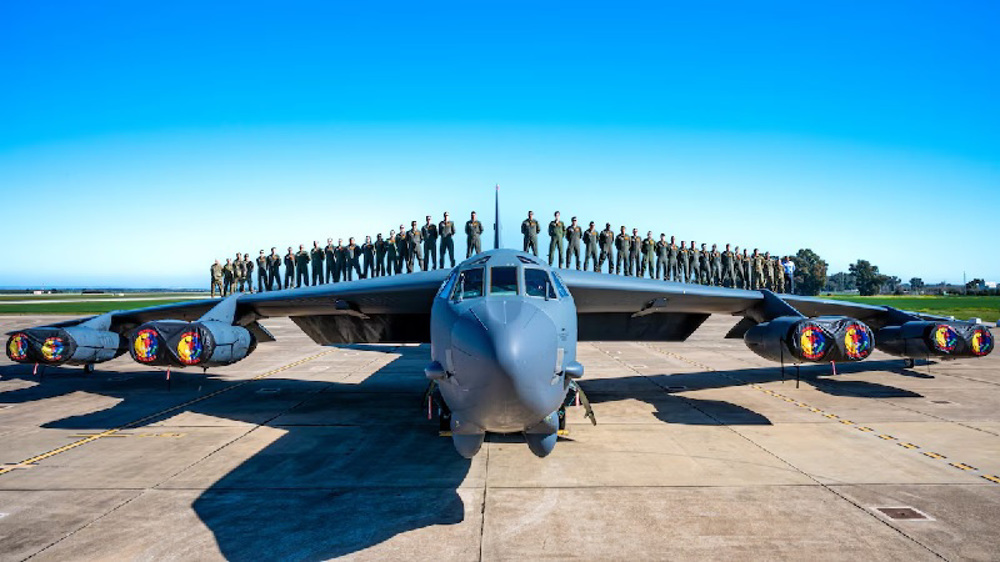
US B-52 bombers in West Asia do not scare Iran

US, France want mercenaries deployed in south Lebanon: Report
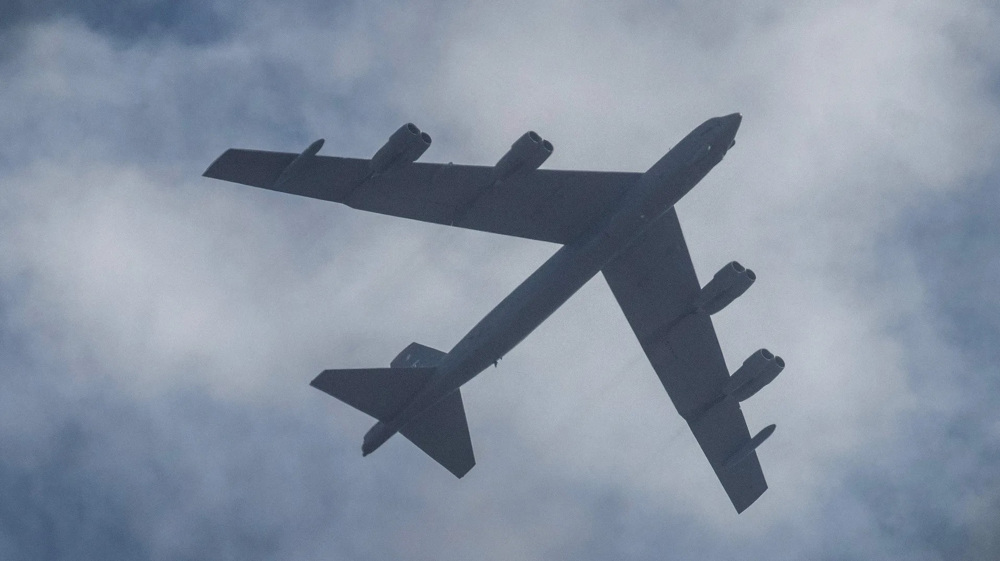
US bombers fly over Mediterranean Sea as delivery of heavy bombs to Israel announced
Egypt: Hamas-Israel negotiations on next phase of ceasefire begin
Over dozen settlers injured in anti-Israel operation near Haifa
Pezeshkian: Iran open to talks but won’t capitulate to bullies
VIDEO | Iran unveils advanced naval arsenal
VIDEO | Reunion of released Palestinians and their families in Khan Yunis
Kurdish leader Ocalan calls on PKK militants to end war with Turkey
Health leader warns Africa's health services at risk of 'collapse'
VIDEO | Press TV's news headlines


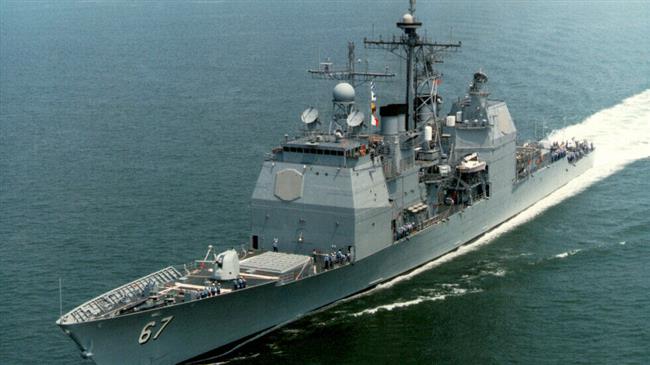




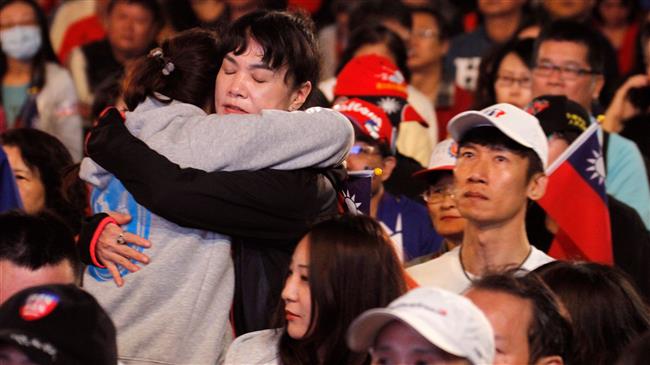
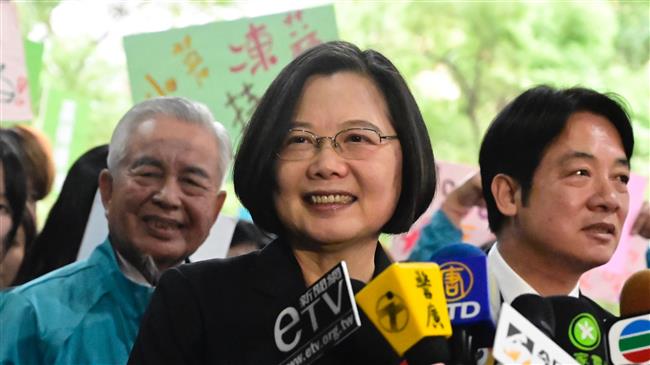
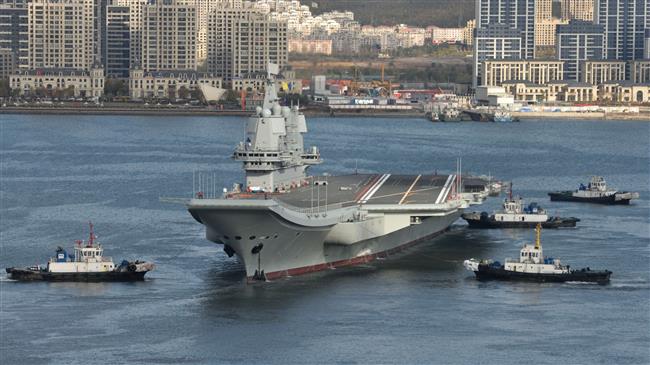
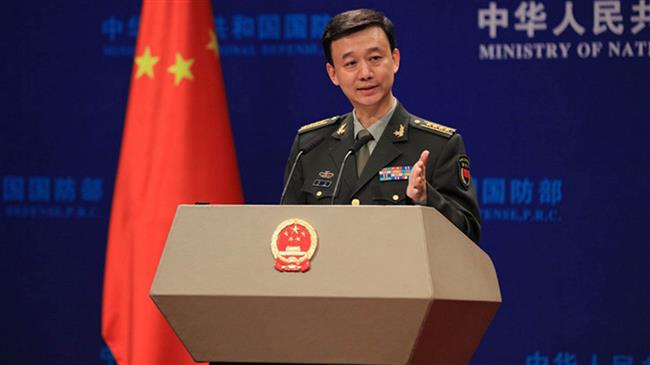
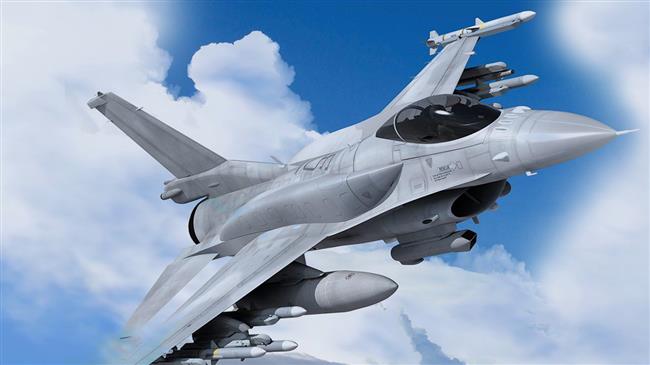

 This makes it easy to access the Press TV website
This makes it easy to access the Press TV website